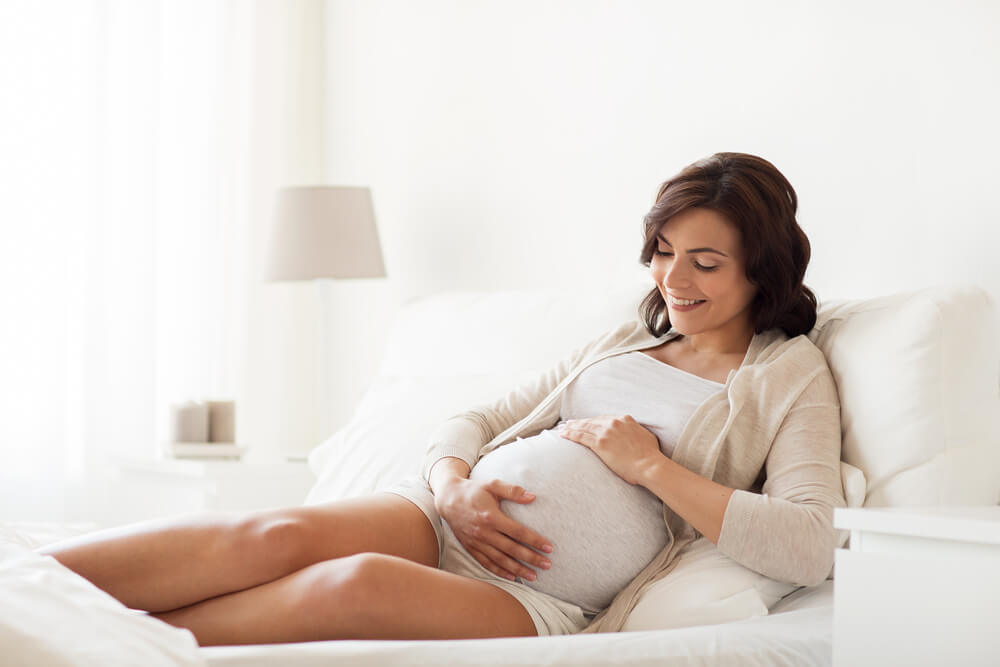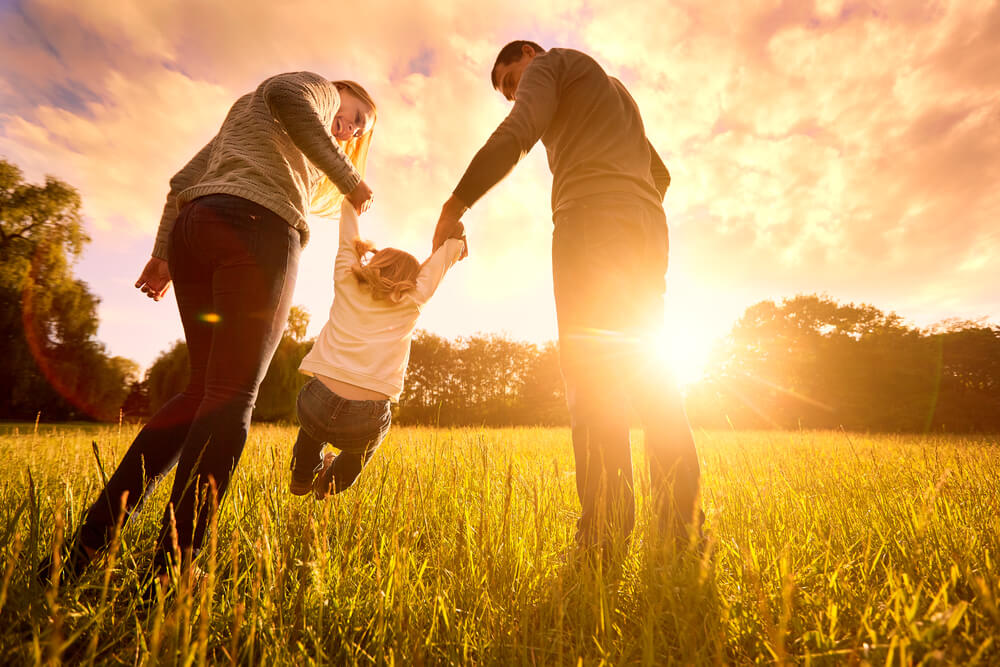What is the best age to get pregnant? The answer may surprise you. While the average woman may become pregnant and bear children from the age of 12, this is not always the case. Most experts claim that the best age to have kids is between your late 20s to early 30s – but this is also very relative, and there are many factors you need to consider to determine the appropriate age for you. This article is perfect for you if you are wondering about the ideal pregnancy age and the benefits and risks of delaying having a baby. Below, we’ve outlined and explained everything you need to know about the best childbearing age so you can feel more confident and knowledgeable about this topic. By the end of this article, you will see the expert facts about fertility and age and the common risks involved when having a baby later in life. Of course, you will also want to seek out the help of a trained medical professional. If you are in the area or you are looking for the best clinic, we recommend prenatal care in South Miami, Florida.
What is the best age to have a baby, and what are some factors to consider before getting pregnant? Here are the expert-approved facts to have in mind.
What is the Best Age to Get Pregnant?
As mentioned, the best age to get pregnant is your late 20s to early 30s. According to experts, your fertility rate is the highest in your 20s, which is the best time to conceive a child. Women in their 20s have the highest number of high-quality eggs, and pregnancy risks are typically minimal. On average, at the age of 25, a woman’s odds of having a child after three months of attempting to conceive are barely under 20 percent.
When a woman reaches the age of 35, her fertility gradually starts to decline. Because of this, the ideal childbearing age is below 35. Interestingly, females are born with around 1 million eggs — these are all of the eggs they will ever have! Over time, the number of quality eggs drops. When a woman reaches the age of 37, she could have approximately 25,000 eggs remaining. At 35, the odds of having a child after three months of trying to conceive are estimated at 12 percent. The childbearing age stated as ideal in this article is crucial for conception and avoiding potential miscarriage and other genetic abnormalities.
Unfortunately, as the fertility rate drops, the chances of abnormalities and miscarriage rise. Generally, women over the age of 35 may deal with extra complications in their pregnancy or during childbirth, compared to younger women.
If your pregnancy age is over 35, your healthcare provider may recommend added testing and screening for you and your unborn child. For the best treatment and results, we recommend reaching out to Obstetrics and Gynecology in South Miami, Florida.
Determining the best age to have a baby is just one of the factors you need to consider when planning a family of your own. Age is important, but so is financial and emotional readiness. Overall, this timing will vary from one woman to the next.
When it comes to men, what is the best age to have kids? It is true that men can father children in their 50s and beyond. However, from a biological viewpoint, experts claim that men are best suited to become fathers in their late 20s until their early 30s. Additionally, while men do not have a “biological clock” like females do, age still matters when it comes to conception. Namely, as men age, their sperm undergoes different genetic mutations — these can affect fertility and future pregnancies.

How Does Age Affect My Fertility?
A pregnancy age of over 35 can be linked with pregnancy complications. That said, the chances of conceiving a child are also lower as women age. As a reminder, after three months of trying to conceive, the odds of having a child are:
- At the age of 25: 18 percent
- At the age of 30: 16 percent
- At the age of 35: 12 percent
- At the age of 40: 7 percent
Besides aging, here are some of the most common factors that reduce the odds of conceiving:
- Pelvic infection
- Cancer treatments like chemotherapy and radiation
- Smoking and consuming alcohol
My Pregnancy Age is Over 35: What are the Risks?
While the chances of conceiving a child after the age of 35 or in your 40s are slimmer than before, it is possible to get pregnant later in life. Over time, the quality and quantity of the eggs decline, and older eggs are more likely to have chromosome problems. This can lead to a higher chance of having a child with congenital disabilities.
On the bright side, most new mothers in their 40s have healthy and happy babies. However, with age, pregnancy risks may increase. Some of the risks include the following:
- Stillbirth
- Congenital disabilities (such as congenital heart defects, craniosynostosis or the abnormal growth of the skull, hypospadias or a male urethra abnormality, etc.)
- Premature birth
- C-Section delivery
- Low birth weight
Moreover, medical conditions such as high blood pressure and diabetes are common in females over 35. As a result, women with these conditions may encounter complications during pregnancy, like preeclampsia and gestational diabetes.
What are the Benefits of Having Children Later in Life?
While there are some risks involved with having children later in life (such as miscarriage and birth defects), there are also many benefits of delaying planning a family. For instance, you will have time to establish a relationship and become financially secure. Also, age may bring patience and wisdom. According to some findings, babies born to older mothers reach higher education levels.
What are the Benefits of Having Children Young?
Becoming a mother at a younger age is better for the baby’s health. Plus, conceiving a baby in your 20s or early 30s can reduce the risks of complications during pregnancy.

Top Tips for Conception
If you want to become a parent and you are trying to conceive, here are some of the best tricks to help you make your dreams of becoming a parent a reality:
- Reach a healthy weight: Overweight or underweight women may have difficulties ovulating. Find out your ideal weight by consulting with a healthcare professional. You may need to lose weight or gain weight before getting pregnant.
- Quit drinking alcohol and smoking: Smoking and alcohol consumption can damage the egg supply. Also, if you are pregnant, smoking can boost your chances of having a miscarriage.
- Consume a healthy and balanced diet: Eat a wholesome diet full of vitamins and minerals. Focus on getting enough quality protein from lean sources (chicken breast, fish, low-fat yogurt, vegan alternatives, etc.), fats (olive oil, seeds, nuts, etc.), and complex carbohydrates (oats, whole grain bread, pasta, etc.). Try to include a rainbow of fresh fruits and vegetables.
Should I See a Fertility Expert?
If you and your partner have been trying to have a baby but you are unfruitful, it may be time to seek out the help of a fertility specialist. See a professional if you are under the age of 35, and you have been trying for one year. If you are over the age of 35 and you’ve been trying for six months, you may need professional guidance.
Book a Schedule Today
You want to become a parent, but you are encountering some roadblocks. Or you may need expert tips and guidance to help you be the best mother possible. We’re here to help you! Reach out to Obstetrics and Gynecology in South Miami, Florida, to get started!


